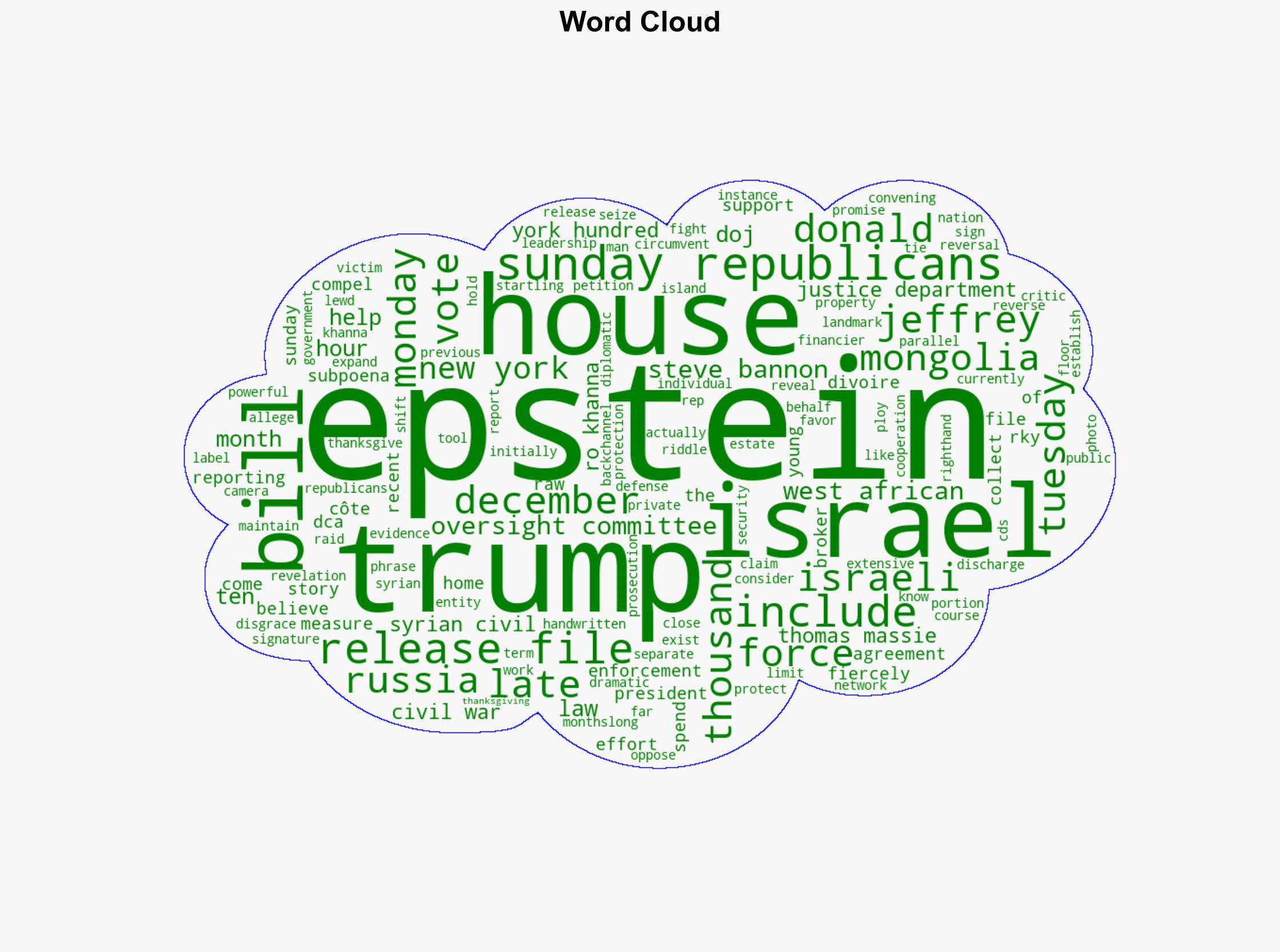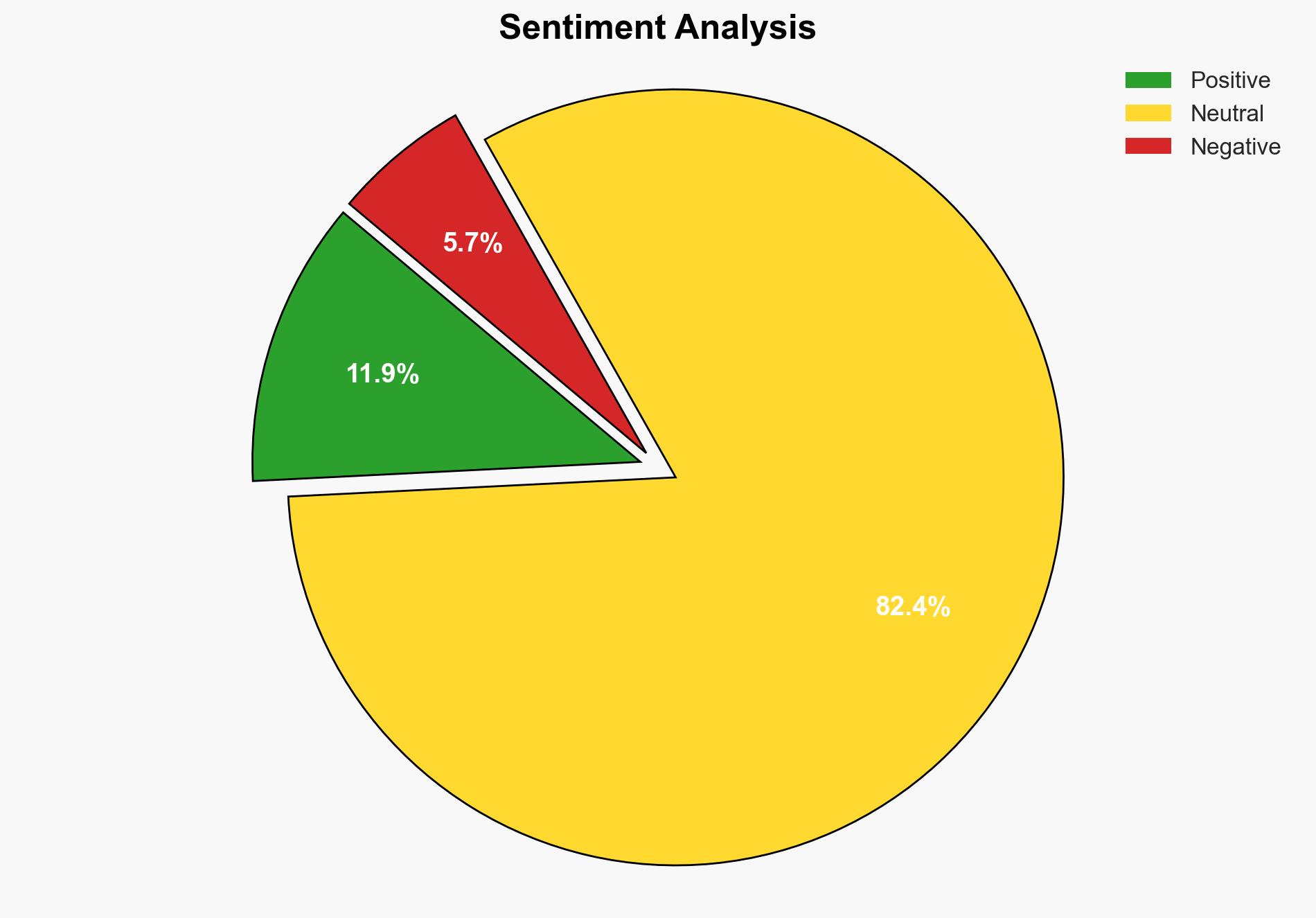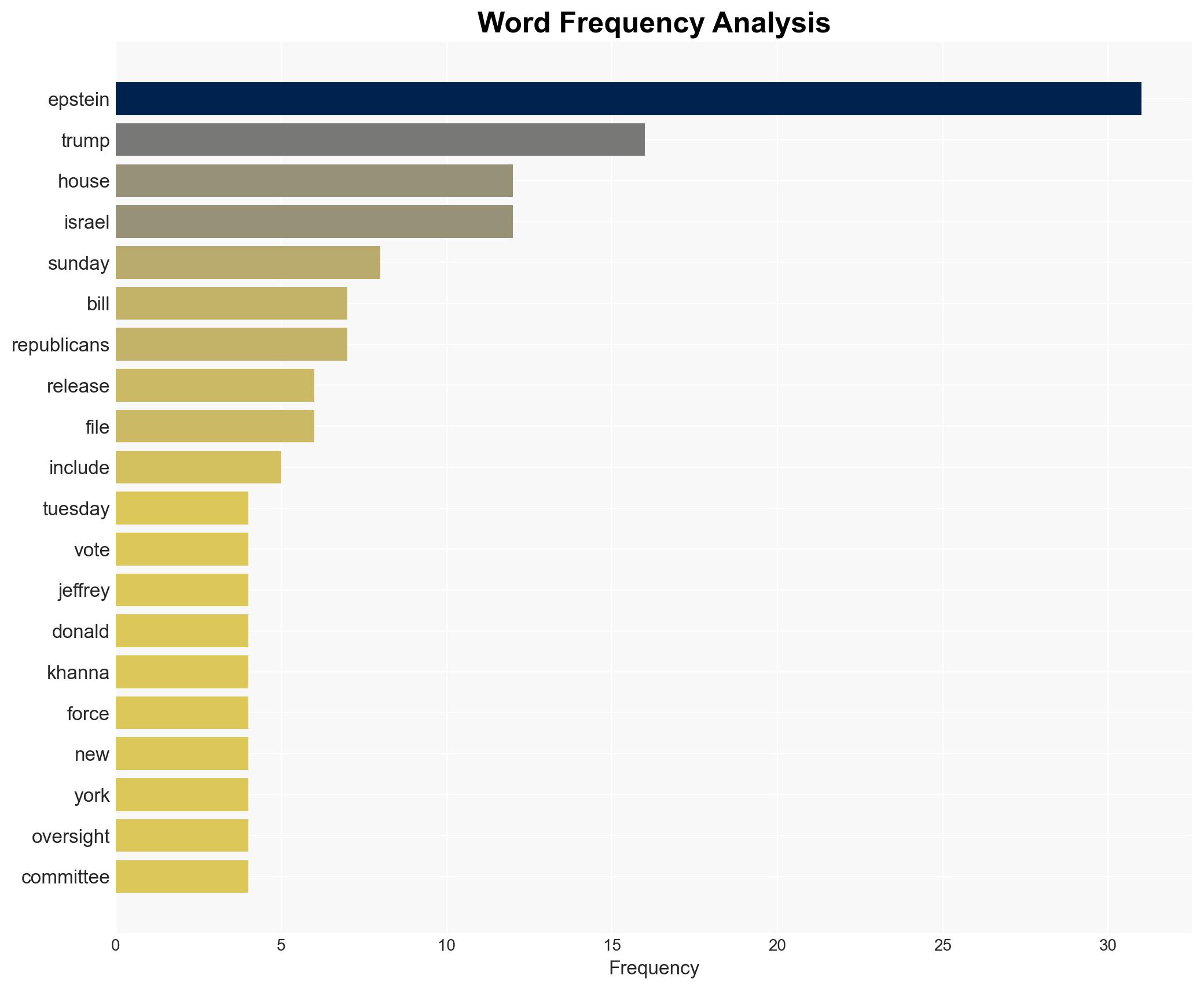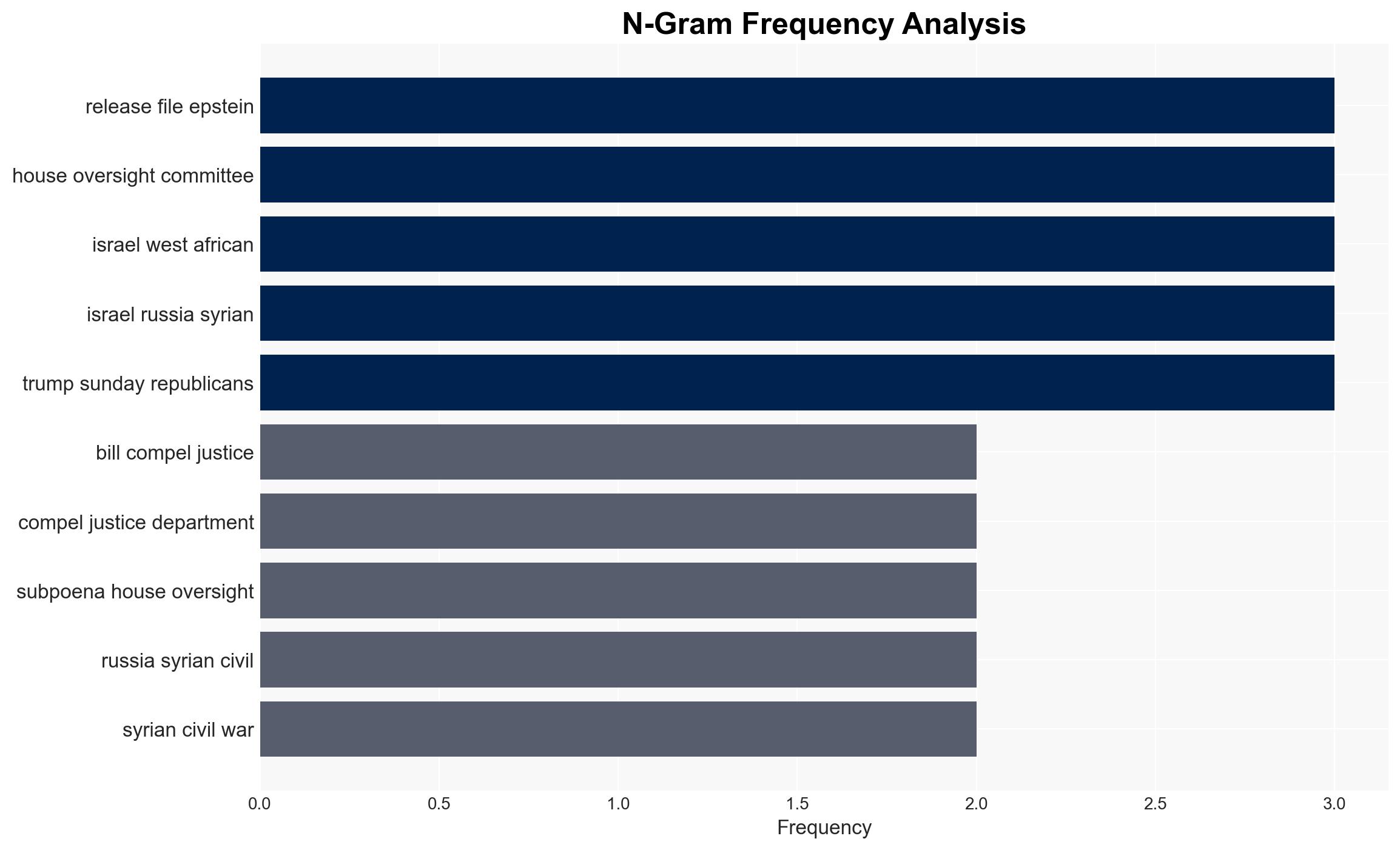WATCH House tees up to vote on releasing Epstein files – Raw Story
Published on: 2025-11-18
AI-powered OSINT brief from verified open sources. Automated NLP signal extraction with human verification. See our Methodology and Why WorldWideWatchers.
Intelligence Report:
1. BLUF (Bottom Line Up Front)
The strategic judgment is that the vote to release Epstein files is likely to proceed, potentially revealing sensitive information that could impact numerous high-profile individuals and entities. The most supported hypothesis is that the release of these files will lead to significant political and legal repercussions, particularly for those previously associated with Epstein. Confidence Level: Moderate. Recommended action includes preparing for potential political fallout and monitoring for any attempts to suppress or manipulate the release of information.
2. Competing Hypotheses
Hypothesis 1: The release of Epstein files will uncover substantial evidence implicating high-profile individuals, leading to political and legal consequences.
Hypothesis 2: The release of Epstein files will be limited in scope due to legal challenges and political maneuvering, minimizing immediate impact.
Hypothesis 1 is more likely given the extensive documentation reportedly held by the DOJ and the high level of public and political interest in the case. However, the potential for legal challenges and political interference (Hypothesis 2) cannot be dismissed.
3. Key Assumptions and Red Flags
Assumptions include the belief that the DOJ holds significant, incriminating evidence within the Epstein files. A red flag is the potential for political figures to influence the release process, as indicated by Trump’s initial opposition and subsequent reversal. Deception indicators include the possibility of selective leaks or misinformation campaigns to control the narrative.
4. Implications and Strategic Risks
The release of Epstein files could lead to political destabilization if high-profile individuals are implicated. This may result in legal battles, reputational damage, and shifts in political alliances. Cyber threats could emerge as actors attempt to access or suppress information. Economically, entities linked to implicated individuals may face scrutiny and financial repercussions. Informational risks include the spread of disinformation to shape public perception.
5. Recommendations and Outlook
- Monitor the legislative process and prepare for potential legal challenges to the release of files.
- Develop a communication strategy to address potential misinformation and manage public perception.
- Best-case scenario: Files are released without significant legal obstruction, leading to accountability and transparency.
- Worst-case scenario: Files are suppressed or heavily redacted, leading to public distrust and potential unrest.
- Most-likely scenario: Partial release of files with subsequent legal and political fallout.
6. Key Individuals and Entities
Donald Trump, Thomas Massie, Ro Khanna, Steve Bannon, Jeffrey Epstein, DOJ
7. Thematic Tags
National Security Threats, Political Risk, Legal Challenges, Information Warfare
Structured Analytic Techniques Applied
- Cognitive Bias Stress Test: Expose and correct potential biases in assessments through red-teaming and structured challenge.
- Bayesian Scenario Modeling: Use probabilistic forecasting for conflict trajectories or escalation likelihood.
- Network Influence Mapping: Map influence relationships to assess actor impact.
Explore more:
National Security Threats Briefs ·
Daily Summary ·
Support us





